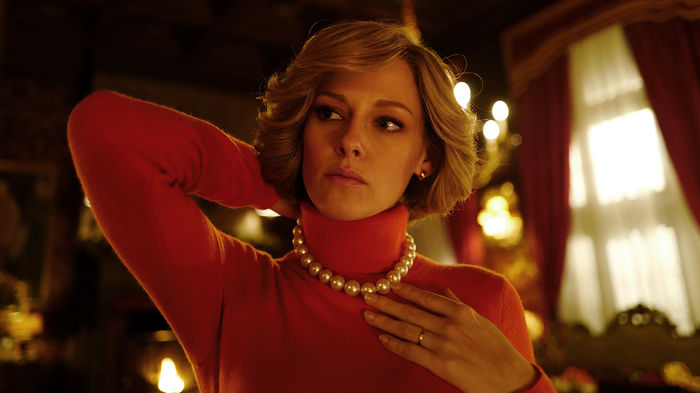‘The Real Housewives’: misogyny machine or reflection of a misogynistic society?
Critics of ‘The Real Housewives’ franchise more often than not reveal their own misogynistic beliefs about what women can and can’t do in modern society, Jake Mustard argues

Anyone fortunate enough to have caught an episode of The Real Housewives will recognise the irony in its branding. Very few of the women that appear on the hit series fit the ‘housewife’ mould, and even fewer could be described as ‘real’. The franchise has enticed many a viewer, myself proudly included, into the lives of the affluent women of Atlanta, Cheshire or Johannesburg, all while being subject to a barrage of feminist critique. The crux of this anti-Housewives rhetoric is perhaps best articulated by Gloria Steinem: the Real Housewives are offensive “because they present women as rich, pampered, dependent and hateful towards each other.”
As an avid Housewives-fanatic, I’m troubled by Steinem’s critiques. Has my indulgence in the televised lives of these affluent socialites fuelled a portrayal of women that is irresponsible and misogynistic? Fortunately for my conscience, when I reflect on the cumulative 84 seasons of the shows in the US canon, I feel that The Real Housewives has presented women more progressively than it’s given credit for.
“What's wrong with being a housewife?”
Perhaps the first hurdle for a feminist viewer is the franchise’s name. The “dependent” and subservient housewife archetype is rarely held up as a symbol of female empowerment, though concerned viewers will be quick to realise that the title is decidedly tongue-in-cheek. Since The Real Housewives’ 2006 conception, the franchise has rarely featured a cast member who conforms to its title. From lawyers to professors to anaesthesiologists, the show is rich with professionally successful women.
Clarifying the occupational diversity of The Real Housewives is necessary to fend off its usual critics, but it’s also an uncomfortable task. What’s wrong with being a housewife? Those who take offence at the very concept of women who don’t work outside the home are espousing a version of feminism outdated by several waves. Steinem’s tirade against The Real Housewives implies that being financially “dependent” on one’s spouse is as bad as being “hateful”. It’s these views that toxify The Real Housewives. The show should not be held accountable for the misogyny of the prejudiced viewer.
Real Housewives criticism is often rooted in the concern that by televising argumentative women, the entire sex is tarnished. This concern stems from a double standard for men and women. Casual observers often label feuding Housewives as bitchy, uncouth or embarrassing. Take the example of when feuds turn physical. In the eyes of many, this is the point of no return for any self-respecting woman. They become base, immature and intrinsically violent. The women of the franchise know and fear being tainted with this brush. In the limited instances where Real Housewives have come to blows, they immediately repent and express disbelief that they could have acted so out of character.
Can the same be said for men? Firstly, men can’t ‘cat-fight’: a brawl between two men is often considered necessary for conflict resolution, with men praised for their supposed maturity when they swiftly move on. The Real Housewives are not extended this courtesy. Women have lowered themselves the moment they share a terse exchange — God forbid they lay a hand on one another! A critic may blame this uncomfortable misogyny on the institution of The Real Housewives itself. I would encourage such a critic to look to the prejudices of viewers for the true source of this unfairness.
“The women of the franchise know and fear being tainted with this brush”
Long-time viewers will know that the worst victims of these double standards are Housewives of colour. When fights escalate between black cast members, they predictably trigger a discussion on how their actions reflect onto stereotypes about black women. The majority-white cast of Beverly Hills or the Italian-Americans of New Jersey never confront these questions. This does not make The Real Housewives problematic. The problem originates in the audience’s tendency to burden reality stars with the responsibility for society’s views on their entire sex and race.
Housewives critics like Steinem want the entertainment industry to fold to misogynistic pressure. If society wants to see women as catty and unhinged, we should cleanse television of all quarrelsome women! If society sees women as domestic and dependent, we should cleanse television of all housewives! This stance is unfair to the women in question and misses the true sources at play. I cannot say that I would be any better at analysing modern day misogyny. All I can confidently say is that the 2006 debut of The Real Housewives of Orange County is unlikely to be its source.
 Comment / Cambridge students are too opinionated 21 April 2025
Comment / Cambridge students are too opinionated 21 April 2025 Comment / Does the AI revolution render coursework obsolete?23 April 2025
Comment / Does the AI revolution render coursework obsolete?23 April 2025 Comment / Cambridge’s tourism risks commodifying students18 April 2025
Comment / Cambridge’s tourism risks commodifying students18 April 2025 News / News in brief: campaigning and drinking20 April 2025
News / News in brief: campaigning and drinking20 April 2025 Interviews / Meet the Chaplain who’s working to make Cambridge a university of sanctuary for refugees20 April 2025
Interviews / Meet the Chaplain who’s working to make Cambridge a university of sanctuary for refugees20 April 2025






